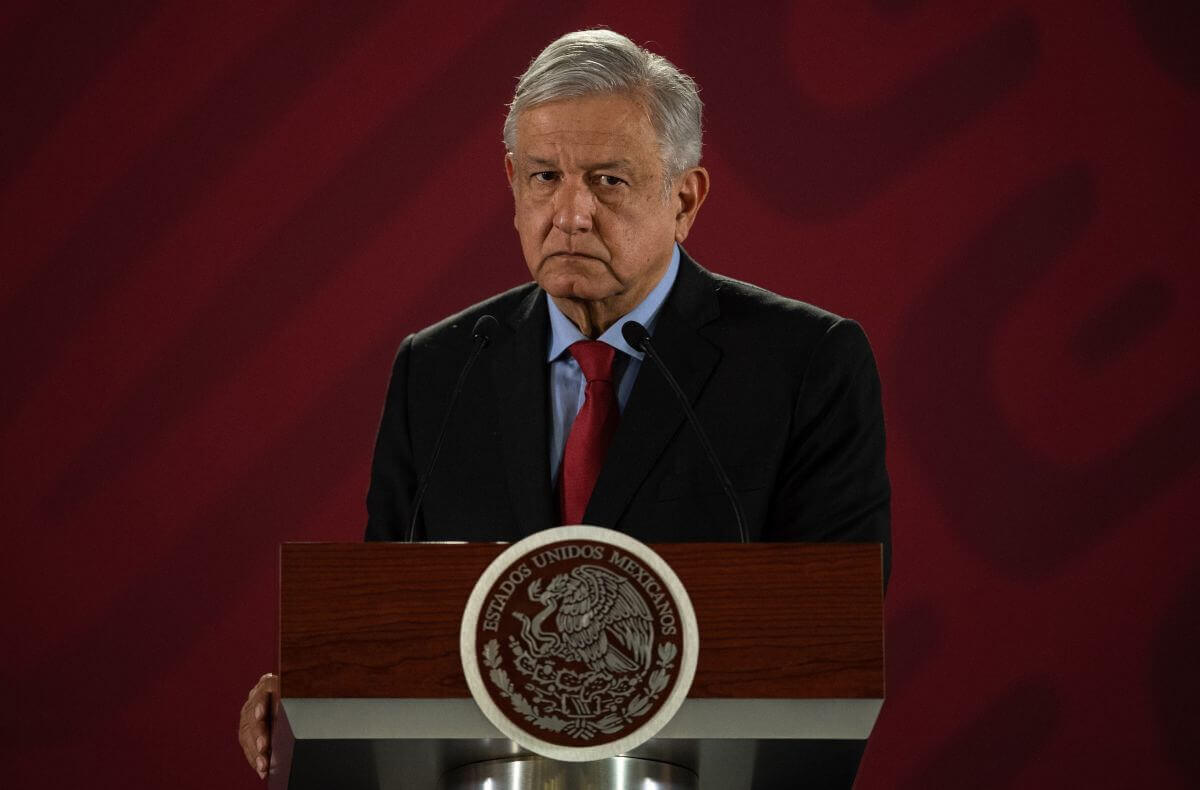While it may be a stretch to suggest that the ongoing coronavirus crisis has ushered in a new era in US-Mexico relations, particularly under President Donald Trump, relations between the two bordering nations are noticeably more friendly and cooperative.
During the campaign trail preceding the 2016 presidential election, Trump labelled Mexicans as ‘rapists’, drug traffickers, criminals, and said that they brought “tremendous infectious disease[s]” with them. He promised to build a wall along the southern border and make Mexico pay for it. Last year, he threatened to place heavy tariffs on Mexican exports.
This month, however, Trump has called Mexican President Andrés Manuel López Obrador a “very good friend”, and praised his “tremendous intelligence”. Similarly, López Obrador has hailed his “friendship” with Trump, and has talked of visiting him once this pandemic draws to a close, which is highly uncharacteristic as he has not traveled outside Mexico since taking office 18 months ago.
Moreover, this friendship has not only yielded platitudes, but also tangible benefits. When Trump was brokering a deal between oil-producing nations to reduce production, Trump offered to further reduce US production on behalf of Mexico. This would allow Mexico, which could not afford to significantly reduce production, to make fewer cuts than required by the deal right now, provided that it pays the US back in the future.
Trump also called López Obrador to say that the US would send Mexico 1,000 ventilators by the end of the month, and offer the option to buy more.
In addition, the Department of Homeland Security has engaged in cordial relations with Mexico over restricting non-essential travel across the southern border during this pandemic.
In response, López Obrador discussed meeting Trump in June or July to “express [Mexico’s] appreciation”, adding that Trump “has been respectful of the people and government of Mexico”. He further stated, “There isn’t the belittling of Mexicans like there had been before, there isn’t with the same intensity.”
Of course, much of the thawing in this relationship cannot be attributed to the ongoing coronavirus crisis alone. In fact, it has been an ongoing process for over a year now. López Obrador has long talked about stepping away from his predecessors’ policies of privatizing state-owned businesses and unions. However, last year, Mexico signed a new regional free-trade agreement with the US and Canada. This indicated that López Obrador had understood that, in order to protect Mexico’s economy from the highly volatile Trump, he may need to not only massage Trump’s ego through his words, but his actions as well.
Similarly, when an overwhelming amount of asylum seekers arrived at the US-Mexico border last year, Mexico avoided the crippling tariffs Trump was threatening by deploying its National Guard to stop several Central American immigrants headed north to the US. Mexico also acquiesced to Trump’s policy of making asylum seekers wait in Mexico while their cases were being processed in the US. Even during the ongoing pandemic, the US is using its health emergency to send Mexicans and Central Americans back to Mexico.
Thus, given the fragility of Mexico’s economy, López Obrador has had to swallow his pride and forgo some of his core policies to appease Trump. While this has reduced Mexico’s autonomy in a sense, it has also bought some goodwill and softened the position of Trump, who has previously engaged in a far greater level of aggression against Mexico.
COVID-19 Crisis Improves Fractured US-Mexico Relationship
Relations between the two bordering nations are noticeably more friendly and cooperative.
April 23, 2020

IMAGE SOURCE: PEDRO PARDO / AFP / GETTY IMAGESMexican President Andrés Manuel López Obrador
